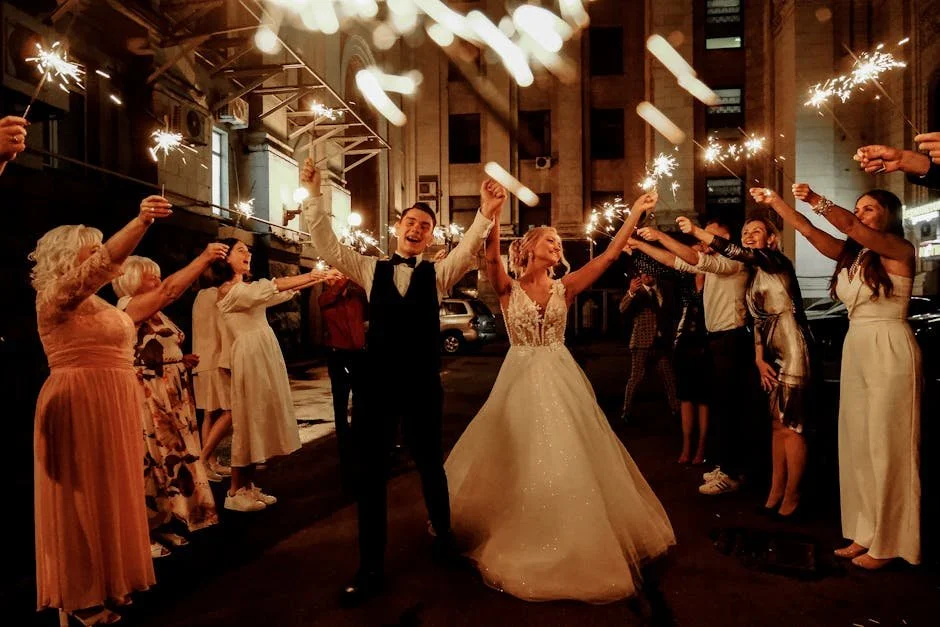Navigating Rough Waters: How Marriage Counseling Can Transform Your Relationship
Every couple faces challenges, but not every couple knows the secret to overcoming them. Enter marriage counseling: a beacon of hope for partners navigating the stormy seas of their relationship. This guide is your compass to understanding how marriage counseling can not only guide you back to calm waters but transform your relationship in ways you never imagined.
The Signs That It's Time for Marriage Counseling
Many couples struggle to recognize when it's time to seek marriage counseling. Warning signs often manifest as persistent arguments, dwindling intimacy, or a feeling of disconnection that lingers like a dense fog. It's crucial to pay attention to these signals. Waiting too long can turn manageable issues into insurmountable waves that threaten the very foundation of your relationship. Understanding and acknowledging these signs early can be the lifeline your marriage needs.
Some of the most telling signs include a breakdown in communication, where conversations turn into battles, or worse, silence becomes the norm. Financial stresses, infidelity, and differences in parenting styles can also push a relationship towards the rocks. It's in these moments that couples need to anchor themselves with the support of a professional to steer them back to safety.
What to Expect: Demystifying the Process of Marriage Counseling
The thought of marriage counseling can be daunting for many. However, understanding what to expect can ease those initial fears. Initially, sessions focus on establishing communication norms and setting goals for your journey together. It's a collaborative process where both partners are encouraged to share their feelings, fears, and desires in a safe and controlled environment.
Counselors act not as judges but as facilitators for healthy dialogue. They employ various therapeutic techniques to help identify the root causes of conflicts and teach couples strategies for resolving them. Be prepared for homework assignments designed to apply these strategies outside of therapy sessions, fostering continuous growth and healing.
Common Challenges Couples Face in Therapy
Marriage counseling, while transformative, is not without its challenges. One of the most significant hurdles is vulnerability. Opening up about personal feelings and insecurities can be terrifying, but it's essential for healing. Resistance to change is another common obstacle. Altering long-standing behaviors and patterns requires not just insight, but action.
Additionally, unrealistic expectations can dampen progress. Tools and strategies provided in therapy require time and patience to effect change. It's important for couples to commit fully to the process and to each other, understanding that setbacks are part of the journey towards a healthier, happier relationship.
Trust issues often surface during therapy, challenging the counselor's role and the therapeutic process itself. It takes time to build trust, not only between partners but with the therapist as well. Acknowledging these challenges and facing them together is key to navigating the journey of counseling successfully.
The Transformative Effects of Marriage Counseling
The journey through marriage counseling can lead to remarkable transformations within a relationship. Couples often discover a deeper understanding and appreciation for each other, learning to communicate in ways that strengthen their bond. The development of conflict resolution skills not only helps navigate current disputes but equips partners with the tools needed for future challenges.
Another significant transformation is the rekindling of intimacy and connection. Through therapeutic exercises and open dialogue, couples often find their way back to each other, reigniting the spark that brought them together. Marriage counseling also fosters individual growth, encouraging each partner to reflect on their own needs and behaviors and how they affect the relationship.
These changes do not occur overnight but unfold as couples commit to their therapy sessions and to doing the work outside those sessions. The willingness to grow together and individually can turn the tides of even the most troubled relationships, leading to a more fulfilling partnership.
Taking the First Step: How to Find the Right Therapist for You
Finding the right therapist is crucial to the success of marriage counseling. Start by seeking recommendations from trusted sources or researching therapists who specialize in marriage or couples therapy. It's important to look for a licensed professional who has experience with the issues you're facing.
Many therapists offer initial consultations, which can be a great opportunity to ask questions and get a feel for their style and approach. Look for a therapist with whom both partners feel comfortable, as trust and rapport are essential components of effective counseling. Remember, the right therapist is someone who understands the unique dynamics of your relationship and can guide you towards healing and growth.
Discovering Treasure in Rough Waters
Embarking on the journey of marriage counseling is akin to setting sail into unknown waters, with hope as your guiding star. It demands courage, openness, and the willingness to explore the depths of your relationship. As you navigate through the rough waters with a skilled therapist, you uncover the strength, resilience, and love that bind you together, emerging not just unscathed but stronger and more connected. Let this exploration of marriage counseling be your map to finding treasure in your relationship—treasure that has always been there, waiting to be discovered.




